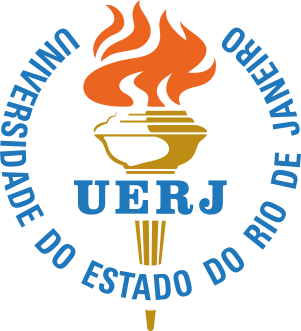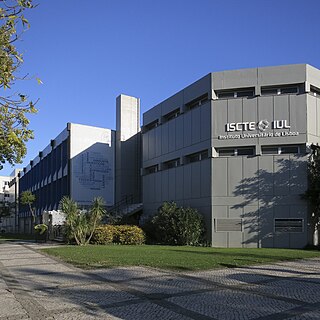
Antioch University is a private university with multiple campuses in the United States and online programs. Founded in 1852 as Antioch College, its first president was politician, abolitionist, and education reformer Horace Mann. It changed its name to Antioch University in 1977 to reflect its growth across the country into numerous graduate education programs. It now operates four campuses located in three states, as well as an online division and the Graduate School of Leadership and Change. All campuses of the university are regionally accredited by the Higher Learning Commission. Campuses are located in Los Angeles, California; Santa Barbara, California; Keene, New Hampshire; and, Seattle, Washington. Additionally, Antioch University houses two institution-wide programs, the Graduate School of Leadership and Change and Antioch University Online. Antioch University suspended operations of Antioch College in 2008, and later sold the campus and a license to use the name "Antioch College" to a new and independent non-profit corporation in 2009. Since then, the college has had no affiliation with the university.
A postgraduate diploma is a postgraduate qualification awarded after a university degree, which supplements the original degree and awards them with a graduate diploma. Countries that award postgraduate diplomas include but are not limited to Bangladesh, Barbados, Belgium, Brazil, Canada, Chile, Colombia, Germany, Hong Kong, Jamaica, Spain, Kenya, South Africa, Sudan, India, Ireland, the Netherlands, New Zealand, Nigeria, Republic of Panama the Philippines, Portugal, Russia, Pakistan, Poland, Saudi Arabia, Singapore, Sweden, the United Kingdom, Sri Lanka, Trinidad and Tobago and Zimbabwe. Level of education and recognition differ per issuing country.

The Federal University of Rio de Janeiro or University of Brazil is a public research university located in the state of Rio de Janeiro, Brazil. It is the largest federal university in the country and is one of the Brazilian centers of excellence in teaching and research. In terms of scientific, artistic and cultural productions it is recognized nationally and internationally due to the great professors, researchers, reviews and assessments made by international agencies. In 2017 QS World University Rankings ranked UFRJ as the best Brazilian federal university, as well as the third best university in the country occupying the seventh position among institutions of Latin America. In 2016 and 2017 the Ranking Universitário Folha (RUF) ranked UFRJ as the best university in Brazil and the best Federal University in the country. The Center for World University Rankings (CWUR) published in 2017, rated UFRJ as the second best university in the world in the Zoology field.

Instituto Superior TécnicoMHSE • MHIP is a public school of engineering and technology, part of University of Lisbon. It was founded as an autonomous school in 1911, and integrated in the Universidade Técnica de Lisboa in 1930. IST is the largest school of engineering in Portugal by number of enrolled students, faculty size, scientific production and patents.

The Federal University of Ceará is a federal university with campuses in the cities of Fortaleza, Sobral, Barbalha, Russas, Quixadá and Crateús, in the state of Ceará, Brazil. UFC is a public and tuition-free university, with several academic programs in most areas of knowledge.

Education in Portugal is free and compulsory until the age of 18, when students usually complete their year 12. However, only one of those requirements is necessary. The education is regulated by the State through the Ministry of Education. There is a system of public education and also many private schools at all levels of education. The first Portuguese medieval universities, such as the University of Coimbra, were created in the 13th century, and the national higher education system is fully integrated into the European Higher Education Area.

NOVA University Lisbon, or just NOVA, is a Portuguese public university whose rectorate is located in Campolide, Lisbon. Founded in 1973, it is the newest of the public universities in the Portuguese capital city, earning its name as the "New" (NOVA) University of Lisbon.

The University of Brasília is a federal public university in Brasília, the capital of Brazil. It was founded in 1960 and has since consistently been named among the top five Brazilian universities and the top fifteen universities in South America by Times Higher Education (THE).

Federal University of Pernambuco is a public university in Recife, Brazil, established in 1946. UFPE has 70 undergraduate courses and 175 postgraduate courses. As of 2007, UFPE had 35,000 students and 2,000 professors. The university has three campuses: Recife, Vitória de Santo Antão, and Caruaru. Its main campus, Campus Reitor Joaquim Amazonas, is located in western Recife, in the Cidade Universitária neighborhood. The Recife Law School, established in 1827, is located downtown.

Education in Brazil has had many changes. It first began with Jesuit missions, that controlled education for a long time. Then, two hundred years after their arrival, their powers were limited by the Marquis of Pombal. Shortly after the Jesuits' power was limited, the Brazilian government took over education and it is now is run by the government through the Ministry of Education.
Higher education in Portugal is divided into two main subsystems: university and polytechnic education. It is provided in autonomous public and private universities, university institutes, polytechnic institutes and higher education institutions of other types.

Rio de Janeiro State University is a public research university in the state of Rio de Janeiro, Brazil. It is one of the largest and most prestigious universities in the country. The university's law and medical schools are among the best in the nation. Its Biology, Social Science, Nursing and Philosophy courses are also highly praised, as stated by Guia do Estudante.

The Pontifical Catholic University of Rio Grande do Sul is a private non-profit Catholic university. With campuses in the Brazilian cities of Porto Alegre and Viamão, it is the largest private university of the state of Rio Grande do Sul and the first university founded by the Catholic religious institute of the Marist Brothers. PUCRS is considered the best private university of Brazil's Southern Region by the Ministry of Education (MEC), and one of the best private universities in the country, with FGV, PUC-Rio and the PUC-SP.
Universidade Lusófona de Humanidades e Tecnologias is the largest Portuguese private university, and the main institution of Grupo Lusófona, which administers other universities and colleges in Portugal, Brazil, Cape Verde, Angola, Guinea-Bissau and Mozambique. Indeed, promotion of Lusophony is seen as a major objective of the institution; students from former Portuguese African colonies pay substantially reduced fees.

Nova School of Business & Economics is a leading business school in Portugal and one of the best business schools in the world in the areas of Economics, Finance and Management. It offers Bachelor's, Master's, Ph.D., MBA as well as Executive Education programs.

ISCTE – Instituto Universitário de Lisboa is a Portuguese public tertiary education institution. It is located in the city centre of Lisbon, in Cidade Universitária, adjoining the Institute of Social Sciences (ICS) and Institute of Geography and Spatial Planning (IGOT) of the University of Lisbon. ISCTE was formerly called Instituto Superior de Ciências do Trabalho e da Empresa, but its full name was dropped in 2009 when it became a university institute of foundational nature. As of today, ISCTE is widely considered a fully-fledged public research university despite its traditional designation, as reflected in national news coverage of the performance of Portuguese universities internationally and open, external assessments by international organisations. ISCTE Business School holds institutional accreditations from the Association to Advance Collegiate Schools of Business (AACSB) and Association of MBAs (AMBA).
Brazil adopts a mixed system of public and privately funded universities. Public universities can be federally funded or financed by State governments. Private schools can be for-profit or, in the case of Catholic universities, not-for-profit.
The Portuguese Faculdade de Ciências Sociais e Humanas is an organic unit of the Universidade NOVA de Lisboa (NOVA). According to its statutes, “the Faculty of Social and Human Sciences of NOVA University of Lisbon is an institution dedicated to education, scientific research and cultural creation". The Faculty's own identity stems from the coexistence of social sciences with humanities, allowing an unusual interdisciplinarity in the Portuguese higher education panorama.

The Catholic University of Portugal, also referred to as Católica or UCP for short, is a concordat university headquartered in Lisbon and with four locations: Lisbon, Braga, Porto and Viseu. Besides the four centres in Portugal, UCP also has the University of Saint Joseph in Macau as its affiliate.
Teresa Joaquim is a social anthropologist who is the coordinator of the first master's program in women's studies in Portugal. Women's Studies – Gender, Citizenship and Development was launched at the Universidade Aberta in 1995 and Joaquim pressed for it to be expanded to include a PhD platform in 2002. She served as a member of the National Ethics Council for Life Sciences between 1996 and 2001 and as part of the Helsinki Group on Women in Science. She has participated in numerous policy development projects evaluating inclusion and equal opportunity for women for the government of Portugal, as well as the European Union.














